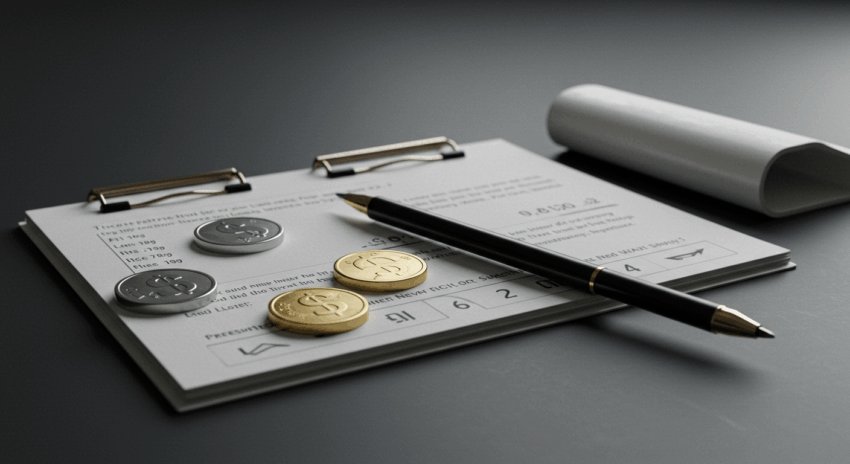Short-Term Investment Products: Options for Conservative Investors
Finding the right place for your money, especially when you need it in the near future, can be a daunting task. You want your savings to grow, but the idea of exposing your hard-earned capital to market volatility is unsettling. If this sounds familiar, you are likely looking for short-term investment products designed for the conservative investor. These financial instruments prioritize capital preservation and liquidity over high-risk, high-reward strategies. This article will guide you through some of the most reliable and accessible options available, helping you make an informed decision that aligns with your financial goals and peace of mind.
Before diving into specific products, it is crucial to understand what it means to be a conservative investor with a short-term horizon. Typically, a short-term timeframe refers to any period up to one year. A conservative investor’s primary goal is to protect their initial investment from loss. This means you are willing to accept lower returns in exchange for greater security and stability. Your focus is not on getting rich quickly, but on ensuring your money is safe, accessible, and hopefully, earning a little more than it would sitting in a standard checking account.
1. High-Yield Savings Accounts (HYSAs)
One of the most straightforward entry points into earning more on your cash is the High-Yield Savings Account. As the name suggests, these accounts offer a significantly higher Annual Percentage Yield (APY) than the savings accounts found at most traditional brick-and-mortar banks. They are typically offered by online banks, which have lower overhead costs and can pass those savings on to customers in the form of better interest rates.
The main appeal of an HYSA is its combination of safety and liquidity. Funds deposited in an HYSA at an FDIC-insured bank or an NCUA-insured credit union are protected up to the legal limit. This makes them virtually risk-free. Furthermore, your money is not locked away; you can access it whenever you need it, making HYSAs an excellent vehicle for an emergency fund or for saving for a near-term goal like a vacation or a down payment. For more ideas on how to manage your funds, check out our section on savings.
Practical Tip: When comparing HYSAs, look beyond the headline APY. Check for any monthly maintenance fees, minimum balance requirements, or limitations on withdrawals or transfers that could diminish your returns.

2. Certificates of Deposit (CDs)
Certificates of Deposit are another secure option for conservative investors. When you open a CD, you agree to leave a specific amount of money with a financial institution for a predetermined period, known to the term length. This can range from a few months to several years. In exchange, the bank pays you interest at a fixed rate, which is generally higher than that of a savings account. Like HYSAs, CDs are insured up to the maximum limit, guaranteeing the safety of your principal.
The primary trade-off with a CD is lower liquidity. Your funds are locked in for the entire term, and if you need to withdraw them early, you will almost certainly face a penalty, which could eat into your interest earnings or even your principal. This makes CDs best suited for money you are certain you will not need to access before the maturity date. They are an excellent tool for goal-specific savings when you have a fixed deadline, such as paying for a wedding or a property tax bill.
Practical Tip: To mitigate the liquidity issue, consider a strategy called a CD ladder. This involves dividing your investment capital among several CDs with staggered maturity dates. For example, instead of putting all your funds into a single one-year CD, you could split it into four smaller CDs that mature in three, six, nine, and twelve months. This gives you periodic access to a portion of your funds without penalty.
3. Money Market Accounts (MMAs)
A Money Market Account combines features of both savings and checking accounts, offering a compelling blend of returns and accessibility. MMAs typically offer higher interest rates than traditional savings accounts—often comparable to HYSAs—but with the added convenience of check-writing privileges or a debit card. This makes them a flexible option for managing larger cash reserves that you may need to access easily.
Like the other deposit accounts, MMAs are also federally insured, providing a high level of security. However, they often come with higher minimum balance requirements than standard savings accounts. Additionally, be aware that these accounts usually have federal transaction limits, restricting you to a certain number of withdrawals or transfers per month. Exceeding these limits can result in fees. MMAs are a great choice for an emergency fund or for holding a large sum of money while you explore other financial products.
4. Short-Term Government Bonds
For the ultimate in safety, conservative investors can turn to short-term government bonds, particularly Treasury bills (T-bills). These are debt securities issued by the U.S. Department of the Treasury with maturities of one year or less. Because they are backed by the full faith and credit of the U.S. government, they are considered one of the safest investments on the planet.
T-bills work differently than savings accounts. You purchase them at a discount to their face value (or par value) and, upon maturity, you receive the full face value. The difference between your purchase price and the face value is your interest. While the returns on T-bills are often modest, their unparalleled safety makes them an excellent vehicle for capital preservation, especially during times of economic uncertainty.
Conclusion
Choosing the right short-term investment product as a conservative investor is about balancing a desire for modest growth with the absolute need for security and access to your funds. High-Yield Savings Accounts offer excellent liquidity and solid returns. Certificates of Deposit provide higher, guaranteed returns if you are willing to sacrifice liquidity. Money Market Accounts offer a flexible hybrid for managing large cash balances, and short-term government bonds provide unmatched safety for your capital.
Your final decision should be based on your specific financial situation, your time horizon, and how easily you need to be able to access your money. By carefully evaluating these options, you can put your cash to work intelligently without taking on unnecessary risk, ensuring it is ready for you when you need it.
Frequently Asked Questions
What is the main difference between a High-Yield Savings Account and a Money Market Account?
The primary difference lies in accessibility features. While both offer higher-than-average interest rates and are federally insured, Money Market Accounts typically provide more convenient access to your funds through check-writing or a debit card. In contrast, HYSAs are purely for saving and usually only allow electronic transfers. MMAs may also have higher minimum deposit requirements.
Is it possible to lose money in these short-term investments?
For federally insured products like HYSAs, CDs, and MMAs, the risk of losing your principal investment is virtually zero, as long as your deposit is within the coverage limits. Similarly, short-term government bonds are considered risk-free from a default perspective. The main risk associated with these products is not loss of principal, but inflation risk—the chance that the interest you earn will not keep pace with the rising cost of living, resulting in a loss of purchasing power over time.
How do I decide which short-term product is best for me?
To choose the best product, assess three key factors: your need for liquidity, your time horizon, and your financial goal. If you need immediate access to the funds at any time (like for an emergency fund), an HYSA or MMA is ideal. If you have a specific sum you know you will not need for a set period (e.g., six months), a CD could offer a better return. If your top priority is absolute security for a large sum of money, government bonds are an excellent choice. Align the product’s features with your specific needs.



